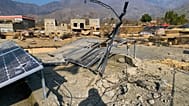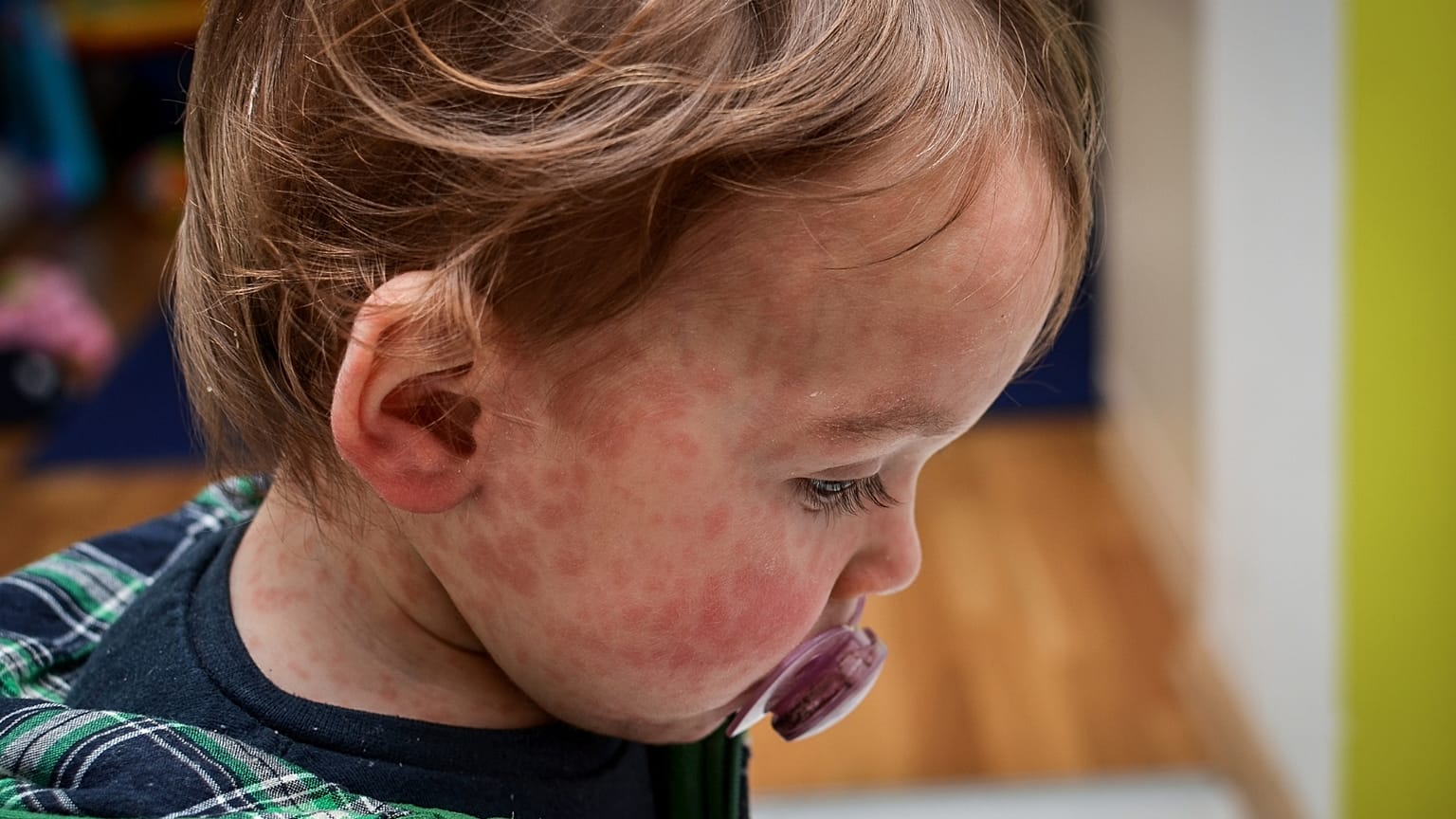With a "national incident" over measles in the UK, what’s the situation in Europe?
Europe is experiencing an "alarming rise" in measles cases, the World Health Organization (WHO) warned on Tuesday, with a more than 30-fold rise across the region in 2023.
 ADVERTISEMENT
ADVERTISEMENT
 ADVERTISEMENT
ADVERTISEMENT
More than 30,000 measles cases were reported by 40 of the WHO European region’s 53 member states between January and October last year, compared to 941 cases in 2022.
The increase in the number of cases is compounded by the hospitalisation of 21,000 people and five measles-related deaths.
The WHO says this upward trend is expected to continue if urgent measures are not taken to prevent further spread.
The UK's health agency has already declared a “national incident” over an outbreak in central England.
The virus practically disappeared in Europe during the COVID-19 lockdowns, but "the overall number of measles cases in the EU/EEA has been steadily increasing since June 2023," the European Centre for Disease Prevention and Control (ECDC) said in its latest weekly threats report.
Alongside the UK, Romania is on red alert. Last December, the country’s health ministry declared a national measles epidemic following a worrying rise in cases and a high number of hospitalisations among infected children.
Since the announcement, four unvaccinated people - three babies and one adult - died due to measles, according to local media and the National Institute of Public Health. The latter confirmed 2,805 cases of the virus in Romania last year.
Austria has been fighting measles since the beginning of 2023, with almost 200 cases recorded through the epidemiological reporting system.
In France, a measles outbreak started in a school in the southeastern commune of Guilherand-Granges in September. By mid-November, 64 cases were confirmed, two of which had to be hospitalised, the regional health agency reported.
Germany recorded 57 cases last year, which was higher than in 2022 but lower than pre-pandemic levels.
Measles vaccination coverage in Europe
The ECDC says that more measles cases are expected in the majority of EU/EEA countries since vaccination coverage is "suboptimal". WHO Europe, meanwhile, warned that the virus resurgence was largely attributed to backsliding in vaccination coverage.
The average vaccination coverage in the EU/EEA has been falling since 2020. The latest data from the ECDC show that coverage for the second dose in 2022 was around 89.7 per cent.
Hungary (99 per cent), Slovakia and Portugal (96 per cent) are the EU countries with the highest levels of measles vaccination, while Estonia (68 per cent) and Romania (71 per cent) have the lowest levels.
The UK's health authorities warned last Friday that the surge in the West Midlands could spread to other towns and cities unless urgent action is taken to boost vaccination uptake.
According to the UK Health Security Agency (UKHSA), as of last Thursday, there had been 216 confirmed measles cases and 103 probable cases in the West Midlands since October 2023, the majority being in children aged under 10.
"With vaccine uptake in some communities so low, there is now a very real risk of seeing the virus spread in other towns and cities," said Jenny Harries, chief executive of the UKHSA.
She stressed the importance of getting two doses of the measles, mumps and rubella (MMR) vaccine for lifelong protection, adding that "it’s never too late to catch up".
"Children who get measles can be very poorly and some will suffer life-changing complications. The best way for parents to protect their children from measles is the MMR vaccine," Harries said.
Siddhartha Datta, WHO Europe's regional adviser on immunisation, agrees.
"The measles vaccines we have are safe and effective. They have been used for years now, and have been able to prevent so many deaths and diseases in the European region," he explained at a press conference last week.
Measles is a highly contagious viral illness that spreads easily when an infected person breathes, coughs or sneezes, according to the WHO, and "can cause severe disease, complications, and even death".
The virus is most common in children. Symptoms may include high fever, cough, runny nose and rash.
The two doses of the MMR vaccine are 96 per cent effective against measles, according to the Vaccine Knowledge Project, managed by the Oxford Vaccine Group.

















